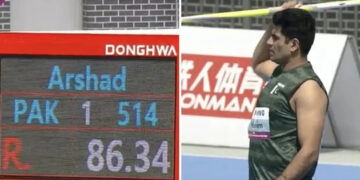KARACHI (Masood Ahmede Siddiqui) Even after almost sixteen years since the construction started in 2001 and its operation in 2007, Gwadar Port remains an expensive and uneconomical port. Lack of infrastructure and road and rail connectivity at Gwadar Port still remain. Inability to function properly does not constitute reason for reasonable commercial activity. Gwadar Port has failed to attract any significant commercial traffic in the last sixteen years since its opening, during which time the government has subsidized transportation charges for transporting bulk fertilizer and wheat discharged at Gwadar.
In 2022/2023, extra transportation cost of nearly 500 million rupees was paid out by NFML for moving about 95,000 mts Urea discharged from three ships at Gwadar. Also in 2023, about 450,000 mts of wheat of Russian Origin which were supposed to be discharged at Karachi / Bin Qasim had been diverted to Gwadar. Extra Transportation cost, calculated basis the then prevailing cost of Diesel oil, was estimated to be about Rs. 7000/pmt. i.e. for moving 450,000 mts of wheat Govt. has burdened us poor tax payers with a net liability of PKR 3.65 Billion or at current rate of exchange for about usd 11.10 million. This total extra transport cost of about Rs. 3.65 billion for fertilizer and wheat which was diverted for discharging at Gwadar Port for no reason whatsoever does not make any sense.


The country cannot afford these types of huge unnecessary losses.
The Government of Pakistan is not obliged to provide cargo to China Overseas Ports Holding Company Limited at Gwadar Port as per the concession agreement. COPHC is responsible for securing cargo for Gwadar Port.
Consider this amount of sheer unjustified expenses with the fact that we were recently running from Pillar to post for a loan of usd 1.2 billion from IMF, we are again negotiating with IMF for another loan.
A study conducted by World Bank for Ports Analysis in Pakistan in 2021, has already pointed out that Gwadar Port will remain underutilized until its communication links are fully operationalized with centers of economy – which in plain words means that unless the transporters find sufficient employment on return trips, they will continue to charge double cost of fuel, and demanding extra incentives, thereby inflating the cost of goods, particularly grains and fertilizer to unbearable levels. It would be far more sensible to spend this kind of money on developing Gwadar city and its public facilities, so as to increase population density and consumers of various services.















